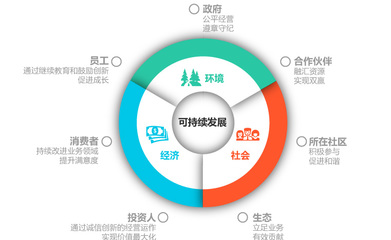A:
Sustainable Development is anumbrella that attempts to bridge the divide between economic growthand environmental protection, while taking into account otherissues traditionally associated with development. It seeks todevelop means of supporting economic growth while supportingbiodiversity, relieving poverty and without using up naturalcapital in the short term at the expense of long term development.While many definitions of the term have been introduced over theyears, the most commonly cited definition comes from the report OurCommon Future, more commonly known as the Brundtland Report, whichstates that sustainable development is development that "meets theneeds of the present without compromising the ability of futuregenerations to meet their own needs”.
Sustainable development is often misinterpreted as focusing solelyon environmental issues. In reality, it is a much broader conceptas sustainable development policies encompass three general policyareas: economic, environmental and social. In support of this,several United Nations texts, most recently the 2005 World SummitOutcome Document, refer to the "interdependent and mutuallyreinforcing pillars" of sustainable development as economicdevelopment, social development, and environmentalprotection.
Sustainable development is a notoriously ambiguous concept, as awide array of views have fallen under its umbrella. The concept hasincluded notions of weak sustainability, strong sustainability anddeep ecology. Different conceptions also reveal a strong tensionbetween ecocentrism and anthropocentrism. Thus, the concept remainsweakly defined and contains a large amount of debate as to itsprecise definition.
 爱华网
爱华网


